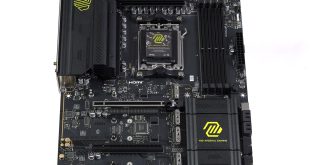There's no two ways about it. Nvidia's RTX 3080 is a stunning return to form for the manufacturer, delivering hugely impressive gen-on-gen gains compared to the RTX 20-series that debuted two years ago. The 3080 is the fastest graphics card we have ever tested (though the RTX 3090 will have something to say about that next week), and it is delivered at almost half the price of last generation's flagship, the RTX 2080 Ti.
The most disappointing aspect of the RTX 20-series was its marginal improvements in terms of traditional raster performance. Ray tracing aside, unless you were willing to pay the big bucks for the 2080 Ti, we didn't get any GPUs that delivered a big generational jump in performance. It seems Nvidia took that disappointment as a challenge; with the RTX 3080, Nvidia has delivered a huge jump forward.
That's because, on average, the RTX 3080 improves on the RTX 2080 by 68% at 4K resolution, while it's also 31% faster than the RTX 2080 Ti and 58% faster than the 2080 Super. Anyone who held onto a GTX 1080 Ti will also see performance increases to the tune of 90%, again at 4K. Across the aisle, AMD is now in real need of Big Navi to deliver the goods when it arrives on October 28, as the 3080 crushes the Radeon VII by 86% and it's over twice as fast as the RX 5700 XT, again at 4K.
The margins of victory for the RTX 3080 do change as we step down in resolution – it's 31% faster than a 2080 Ti at 4K, 25% faster at 1440p and 18% faster at 1080p. The latter resolution proved a significant problem on a number of occasions due to CPU bottlenecks. Even with an i9-10900K running at 5.1GHz, the CPU was holding the 3080 back by a significant margin in at least 5 of the 11 titles we tested today. Even where the bottlenecks weren't as significant, relative gains versus the 2080 Ti were lower at 1080p than 1440p or 4K, in every single game we tested. Gamers looking to buy this GPU will certainly get the most out of it at 4K, though a 55% increase in performance over the RTX 2080 at 1440p shows high refresh rate WQHD users will also get their money's worth.
However you slice it, RTX 3080 is a huge step forward from Turing. Of course, it is easy to be cynical and point out the fact that Turing hardly improved on Pascal in terms of traditional raster performance at this price point, and that does make Ampere look more attractive than it should. There may be an element of truth there, but even the gains versus Pascal look impressive considering the GTX 1080 Ti came out three and a half years ago. The 3080 is 90% faster on average at 4K, but over 120% faster in certain titles like Control and The Division 2.
It's also good to see RTX performance taking a significant stride forward. The improvements to the RT cores and overall architecture mean relative performance with RT on scales slightly better than with it off – gains of around 35-40% compared to the 2080 Ti were typical in our testing. Of course, enabling the technology still results in a significant hit to performance, but as 3080 has pushed things so far forward, the end result isn't nearly as bad as it was with Turing. In Shadow of the Tomb Raider, for instance, we saw average frame rates hitting nearly 90FPS at 1440p with RTX set to Ultra, while Metro Exodus was averaging over 110FPS at the same resolution, again with RTX set to Ultra.
Whether or not this is a selling point for you is really going to be personal preference, and admittedly the list of games with ray tracing features – while growing – is hardly all-encompassing. Still, the more people that buy RTX 3000 for its improvements to rasterised performance only increases the number of people who can enable RTX features in titles they do want to play – games like Cyberpunk 2077, Crysis Remastered and Watch Dogs Legion – thus potentially fuelling developers to focus more on implementing the technology in more games.
The one question mark around overall performance comes down to that 10GB framebuffer. The use of Micron's GDDR6X memory, coupled with a wider memory interface, sees total memory bandwidth improve by 23% compared to the 2080 Ti, but it's really an unknown how the 10GB capacity will fare with 4K gaming as we head into 2021 and beyond. Nothing in my testing suggests it's a factor now, and I'd imagine it's at least a couple of years before it starts making a difference. Even then, considering the 3080 is significantly faster than the 2080 Ti, but has less VRAM, there is a question mark about how that will affect performance in the future.
I have also been hugely impressed with Nvidia's new Founders Edition design. The cooler has been redesigned from the ground up around delivering optimal airflow within a chassis, resulting in a dual-axial design with one fan pushing air from the underside of the card, and another fan pulling air through the heatsink from the top.
The end result is a graphics card that runs around 76C under load, which is pretty much in line with the 2080 Super Founders Edition, while producing a similar amount of noise. What makes this so impressive, is the fact that the cooler can perform like that all while dealing with the card's 320W TGP – a significant increase in power versus last generation.
As for that increase in power draw, I can't say I am too concerned. Nvidia clearly decided all-out performance gains were more important than huge efficiency increases with Ampere, and I think pretty much every gamer out there would agree. If anything, I am now even more keen to assess custom boards from the likes of Gigabyte, ASUS and MSI to see how Nvidia's partners have designed around the increase in power.
Another reason I am keen to see those AIB cards is because my Founders Edition sample was a limited overclocker. I could only add an extra 60MHz to the GPU core, while changes to memory overclocking mean pushing a memory OC too far will result in performance degradation. My best result came with a memory offset of +800MHz.
All told, Nvidia's RTX 3080 is a simply stunning graphics card. It's a huge leap forward compared to the RTX 2080, while also being cheaper at £649, compared to £749 for the RTX 2080 at launch. This is certainly the type of performance increase we wanted to see from Turing, and I imagine many Pascal owners will indeed be upgrading, having skipped the 20-series.
Is it worth waiting for Big Navi? If the rumours around limited supply for the RTX 3080 are true, it's possible the wait will be enforced for many who can't buy Ampere at launch. Still, we don't know anything about Big Navi yet, so those determined to get the best deal may consider waiting. Right now, all we can really say is RDNA2 will need to respond decisively to this launch, as Nvidia has just set the bar – and boy have they set it high.
RTX 3080 Founders Edition has a UK MSRP of £649 and will be available for purchase directly from Nvidia HERE. Custom cards will be available from Overclockers UK starting at £649.99 HERE.
Discuss on our Facebook page HERE.
Pros
- Huge leap in performance compared to the RTX 20-series.
- RTX gaming is significantly more viable.
- Cost per frame leader.
- Still offers an increase in performance per Watt versus Turing, despite high power draw.
- Beautiful new Founders Edition design.
- Cooler and quieter than a 2080 Ti Founders Edition, despite the increased TGP.
Cons
- 10GB VRAM may be a limiting factor for 4K gaming in the future.
- Power draw is high.
KitGuru says: It is hard to be anything but highly impressed with Nvidia's RTX 3080. This graphics card sets a new standard for 4K gaming, and does so while significantly improving on the RTX 20-series in terms of value.
 KitGuru KitGuru.net – Tech News | Hardware News | Hardware Reviews | IOS | Mobile | Gaming | Graphics Cards
KitGuru KitGuru.net – Tech News | Hardware News | Hardware Reviews | IOS | Mobile | Gaming | Graphics Cards





